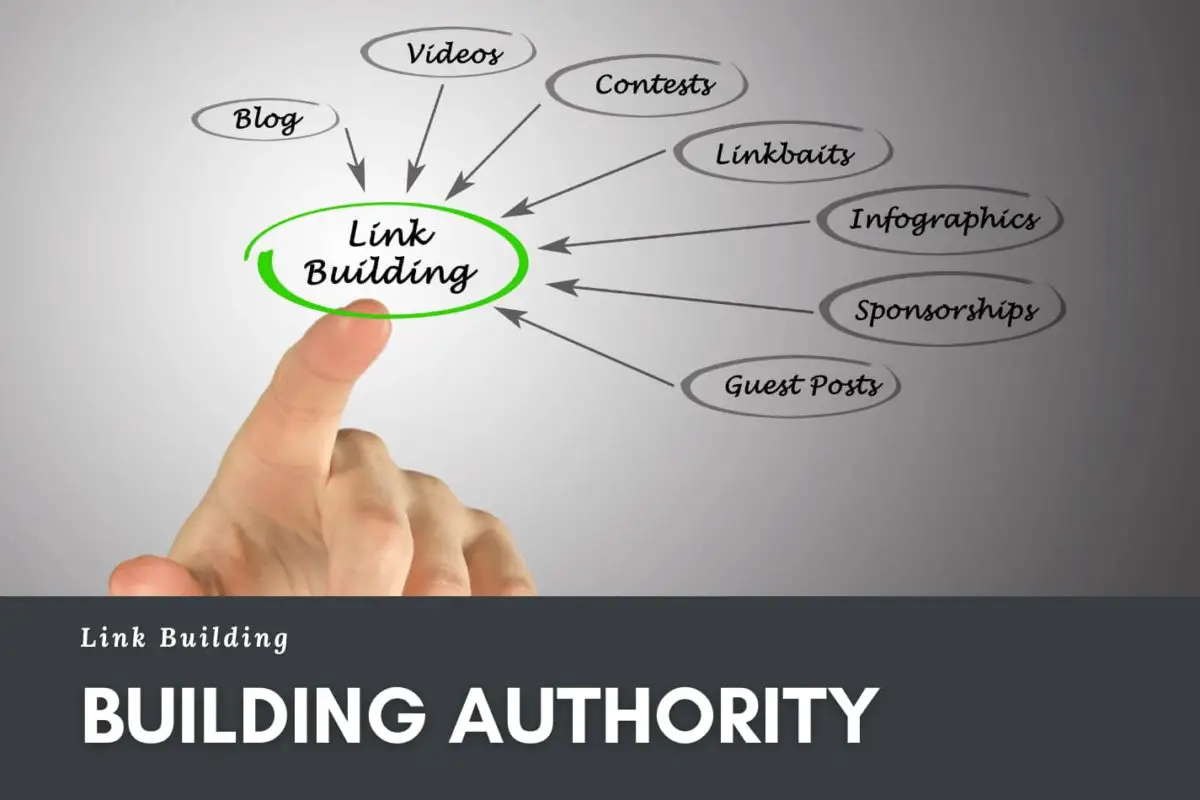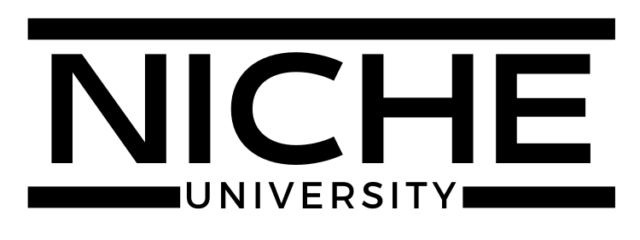For most people beginning their path towards building niche sites, links are what you click to go somewhere, but they are far more important to your website than just this alone.
There are three vital links to think about and keep in mind with your site building: internal, external, and inbound. These would be how you link between your content, where you send your visitors, and how visitors find your site from external websites.
Each link matters a lot in your overall ability to be crawled by search engines, along with where you send the “link juice” from your site and how others send you their “link juice.” Managing this dance of links will take time, knowledge, and tracking to efficiently utilize all the benefits of a link-building strategy.

What Are Backlinks?
If you’re new to search engine optimization, you’ve probably wondered: What are backlinks? They’re votes of confidence in the form of links from other websites that refer to yours.
Getting backlinks from high-quality sites helps your website get better rankings on Google. When backlinks point to your website, search engines like Google weigh them highly when providing results to a user.
The search engine thinks your site is more relevant to the user due to these backlinks. This makes them incredibly powerful for any website to acquire; many choose to use services like One Little Web to help them find niche relevant powerful links.
When analyzing your SEO strategy, you’ll need to know what backlinks are and which ones will benefit you most. Building backlinks is fundamental to search engine optimization, and no other tool is as important.
While many think of backlinks as a complex issue, they’re quite straightforward and play a crucial role in Google rankings.
The most important thing to know about backlinks is that you must understand how they work. Backlinks point from one domain to another and are frequently called by other terms like “inbound links”.
Backlinks increase your online visibility and reputation and can come from many sources like news sites, blogs, online directories, and paid sponsorship.
What Are Internal Links?
Internal links are a crucial aspect of your website’s content as, unlike backlinks, these links are controlled by the site owner, namely you.
They help point visitors back to other areas of your site and give your visitors global context and an understanding of what your site covers overall.
While navigation links are the most obvious example, they aren’t the only type of internal links you should use. You should also remember that the anchor text for your internal links doesn’t have to be the same.
For most niche websites, you may be better off making sure you adjust your anchor text a little bit to add in semantic keywords and alternate spellings.
Adding internal links is an easy way to boost your website’s general SEO value, as it can be done correctly in two minutes or less when tracked.
Adding internal links will encourage users to stay on your website longer, as they’ll move around more within it.
This will frequently lead to large increases in user engagement, a clear indicator for search engines that your content is high-quality. To improve your website’s SEO, you should add internal links to every page on your site.
How Does Link Building Work and Why Does It Matter?
You may now be asking yourself: How Does Link Building Work? Since link building is a key ranking factor in Google and for all other search engines.
Essentially, link building helps to make your post or page appear higher in search results without the continual costs you have to pay for advertising space.
This can be done in many ways, but the most common “white hat” method would be to create excellent content that is better than all other content, has images and infographics, and gets free links to the content; this is frequently called link bait content.
The next common method is HARO, or Help a Reporter Out, a service designed to help reporters get sources without as much time spent as it aligns reporters with sources.
This can lead to very high-quality and authoritative links but requires the management of email requests for quotes and being able to respond fast and efficiently.
One additional way many blogs and niche sites will get links is to “guest post” this means they create a post on another website in exchange, typically for money that can contain a link back to the publisher’s site.
Risks To Focusing Exclusively on Link Building Vs. Content Creation
Link building, though, can be risky as having your links removed by Google can lead to huge drops in rankings, which is no fun.
In addition to the drops, you could also end up dealing with manual penalties from the search engine giant when they find and devalue these “link building” sites and services.
This means you must work on both sides of your business as they are necessary for a healthy website.
Skipping on content creation will impact and flatten your growth, while avoiding links means you face never hit the real traffic growth that top rankings and shorter keywords can give you.
What Should You Do To Acquire Links?
As a niche website owner and SEO, you should always seek ways to acquire links from relevant websites.
Since search engines like Google consider them to be one of the strongest ranking signals, they are crucial in building an organic search presence.
But how do you acquire links? You’ll have to consider a few factors. First, you must ensure that you’re producing quality content that others will find useful.
This will increase your chances of being listed highly in organic search and gaining purely organic backlinks from relevant sites that find your content valuable to their audience.
To acquire links from high-quality websites, you can use tools like SEMrush and Ahrefs. These tools have options to notify you whenever your keyword or brand is mentioned online.
As mentioned above, HARO for new site owners can be a good way to get a few links early if you can provide them with the detail they need in time.
Remember to offer future value in return for the link. It’s a win-win situation!
Why Link Building Is Important For SEO
If you want to improve your search engine ranking, link building is a vital marketing strategy. Link building is the process of acquiring external hyperlinks to your website.
In the eyes of Google, a link boosts a page’s authority, leading to higher search rankings and more traffic.
Links are one of the three most important ranking factors. You will need links to rank well in Google, especially short-tailed keywords with far greater search volume and competition.
Links from other sites are votes of confidence in your content that the search engine uses to determine which page is the most relevant for a particular keyword.
When building links, you should not add your website to every directory worldwide but focus on well-known directories with a lot of traffic.
Creating high-quality content proves that you know your stuff and shows your audience that you’re an expert in your niche.
What Is Link Equity?
You’ve likely heard the term “link equity,” which is the value of links pointing to your website. These are the “link juice” that search engines use to determine which pages to rank in their results.
Many factors influence how much link equity a website has, but the quality of links is the most important and relevant to your site and the number of domains.
Backlinks contribute equity to a website. Google uses many different signals to determine website quality. The first method Google used was called PageRank, based on a website’s existing backlink profile.
To improve your SERP rankings, you will need to create many high-quality backlinks. Most niche websites typically get backlinks to target specific blog content like reviews and best x for y content and then have many generalized brand links to their homepage.
Final Thoughts On Link Building and Why It Matters
Link building has long been a debated topic within the SEO community. Some people ignore link building altogether, while others dedicate 80-90% of their time to link building.
Regardless of your opinion, it is becoming increasingly difficult to ignore link building, especially as competition is increasing in every industry, so make sure to check out One Little Web today and start building your profile.
Authentic, natural links are still beneficial to your organic rankings. While these links may not be as high-quality as the ones created with link-building services, they still provide a net positive boost to your site.
In addition, high-quality inbound links are difficult to purchase and cannot be easily replicated, making this type of building unpredictable, unscalable, and not repeatable. Many of the claims you read on link-building are simply hype or purposefully misleading.
Google considers link-building as one of the most important factors in determining the quality of a website. If you can create high-quality content that people want to share and link to, you will be well on your way to ranking high in search engines.
And if you’re a content creator, make sure to leverage the power of social networks to promote your content.

